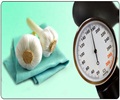Antihypertensive Medications or Medication for High Blood Pressure
Antihypertensive medications Hundreds of antihypertensive medications are available in the market. Different classes of oral antihypertensive drugs have different mechanisms of action.
The goal of therapy is to bring down BP levels to less than <10/90 mm Hg or achieve the target of 120/80 mm Hg for patients with hypertension without co morbidities. If the patient has diabetes or renal disease in addition to hypertension then the target will be set to bring down the BP to <120/80 mm Hg or even lower.
- Diuretics
Diuretics are the oldest drugs available. They are the least expensive ones and still rated as the best antihypertensive drugs. They remove unwanted fluid from the body. Diuretics are subdivided into: Thiazide diuretics, loop diuretics and Potassium-sparing diuretics. The efficacy of multidrug regimens is enhanced by diuretics. But despite this knowledge diuretics remain underutilized.
In cases of uncomplicated cases of hypertension thiazides form the first choice. Some high risk conditions however warrant the initial use of other antihypertensive drug classes.
- Ace Inhibitors & Angiotensin II Receptor Blockers (ARBs)
The antihypertensive drug classes Angiotensin-Converting Enzyme Inhibitors (ACE INHIBITORS) and Angiotensin II Receptor Blockers (ARBs) are gaining popularity because of their low side effect profiles and putative auxiliary benefits on vascular health. Among these two, ARBs are preferred. ARBs provide more therapeutic benefits. They also eliminate the possible side effects like dry cough and angioedema produced by ACE inhibitors. The names of most of the ACE inhibitors end in 'pril', for example captopril; ARBs mostly have their names ending in 'sartan', for example Losartan.
- Aliskerin - Direct renin inhibitor
This is the first in a new class of orally effective, nonpeptide, drugs that directly inhibit the enzyme renin. Aliskerin has a number of advantages over ARBs.
- Calcium-Channel Blockers (CCB)
These drugs lower the blood pressure by relaxing the smooth muscles of blood vessels. In the decreasing order of potency, the three types are: dihydropyridines > diltiazem > verapamil. Amlodipine is an example for a dihydropyridine CCB.
- Beta-Blockers
Drugs called beta blockers are of choice in hypertensive patients with heart diseases. This has however been subjected to debates. Let us not drive into controversies since conclusive evidence that prove otherwise are not yet available. Atenolol is one example.
Apart from these commonly used drugs, we also use Alpha-blockers, direct vasodilators, and other centrally acting drugs. Often a combination of the mentioned drugs will be required. In certain cases, in spite of treatment with combination of drugs BP may remain persistently elevated above 140/90 mm Hg; this is termed Resistant Hypertension. Reasons for this will be multiple, such as failure of the patient to adhere to the correct dosage of drugs; white-coat aggravation (falsely elevated BP due to anxiety of the patient while in front of a doctor); incorrect medical regimen.














